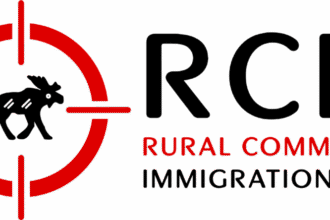Language proficiency is one of the most influential factors in Canada’s immigration system. For many aspiring immigrants, their performance on an approved English or French language test can determine eligibility, impact their ranking in points-based systems, and ultimately influence whether their application is successful. The Canadian government places significant emphasis on language ability because communication is central to integration, employability, and participation in Canadian society. Understanding how language test scores are assessed and applied across different immigration pathways is therefore essential for anyone planning to migrate to Canada.
Why Language Proficiency Matters in Immigration
Canada is officially bilingual, recognizing both English and French as national languages. Proficiency in one or both languages enables newcomers to access better employment opportunities, pursue higher education, and integrate socially. From an immigration perspective, the Immigration, Refugees and Citizenship Canada (IRCC) uses language scores to measure how well an applicant is likely to adapt to life in Canada. According to the IRCC official guidelines, strong language ability is linked to long-term success in Canada’s labor market.
Applicants must demonstrate their skills in four categories: reading, writing, listening, and speaking. Each of these is tested through standardized exams such as the IELTS General Training for English, or TEF Canada for French. The results are then converted into benchmarks under the Canadian Language Benchmarks (CLB) system, which is used to evaluate eligibility for various immigration streams.
Approved Language Tests for Canadian Immigration
Not every language test is accepted for immigration purposes. The IRCC has designated specific tests for English and French proficiency. For English, the two recognized tests are:
- International English Language Testing System (IELTS) – General Training
- Canadian English Language Proficiency Index Program (CELPIP) – General
For French, the approved tests are:
- Test d’évaluation de français (TEF Canada)
- Test de connaissance du français (TCF Canada)
Applicants should be careful to register for the correct version of the exam. For example, the IELTS Academic test is not accepted for immigration, only the General Training format is valid. Detailed information on acceptable tests can be found on the IRCC language testing page.
Language Scores in the Express Entry System
The Express Entry system is Canada’s flagship immigration pathway for skilled workers, and language test results play a central role in determining eligibility and ranking. Express Entry manages three economic immigration programs:
- Federal Skilled Worker Program (FSWP)
- Federal Skilled Trades Program (FSTP)
- Canadian Experience Class (CEC)
For these programs, applicants must meet minimum language requirements. For example, under the FSWP, candidates must achieve at least CLB 7 in each ability (listening, reading, writing, speaking). In contrast, the FSTP requires a lower threshold of CLB 5 for speaking and listening, and CLB 4 for reading and writing.
Beyond eligibility, higher language scores significantly improve a candidate’s Comprehensive Ranking System (CRS) score. The CRS awards up to 260 points for language ability as a single applicant, and up to 270 points for couples. Those who achieve CLB 9 or above in all four abilities gain the maximum points and may also qualify for additional points under the “skill transferability” factors. The Express Entry CRS tool allows applicants to calculate how language scores affect their overall ranking.
French as a Second Official Language Advantage
Canada encourages bilingualism, and candidates who can demonstrate proficiency in both French and English enjoy a competitive advantage. In recent years, the IRCC has introduced special measures to attract more French-speaking immigrants outside Quebec. Under Express Entry, candidates who prove French ability at CLB 7 or higher can gain additional CRS points, especially if they also show moderate English skills.
According to the Government of Canada’s Francophone immigration policy, French-speaking newcomers contribute to linguistic diversity and support minority communities outside Quebec. This makes French test scores particularly valuable for applicants targeting provinces with high demand for bilingual workers.
Provincial Nominee Programs and Language Requirements
The Provincial Nominee Program (PNP) allows provinces and territories to nominate candidates for permanent residency based on local labor market needs. Language requirements vary across provinces, but most demand minimum CLB levels depending on the job category. For instance, some PNP streams aligned with Express Entry require CLB 7, while employer-driven streams for intermediate jobs may accept CLB 4 or 5.
Provinces with significant bilingual communities, such as New Brunswick and Manitoba, may favor applicants with French test scores. Reviewing each province’s immigration page on the Government of Canada website helps applicants identify the minimum language thresholds for specific streams.
Study Permits and Post-Graduation Pathways
For international students, language scores are equally important when applying for study permits. While IRCC itself does not require standardized test results for a study permit, most Canadian universities and colleges require proof of English or French proficiency for admission. Tests such as IELTS Academic or TOEFL are commonly accepted for educational purposes.
Strong language skills also benefit students who later apply for permanent residency through the Canadian Experience Class or provincial student-to-PR pathways. Those who achieve high CLB levels during their studies are better positioned for Express Entry invitations after graduation.
Work Permits and Temporary Residence
Temporary foreign workers may not always need language test results for initial permits, especially in low-wage or employer-specific categories. However, when transitioning to permanent residency, test scores become essential. Programs like the Atlantic Immigration Program and the Rural and Northern Immigration Pilot set clear language thresholds, often requiring CLB 4 or higher. Applicants planning to stay long-term should prepare for testing early, even if their temporary work permit does not demand it.
Retaking Tests to Improve Scores
One of the most strategic decisions applicants can make is to retake their language test if their initial results fall short. Because language points can dramatically boost CRS scores, even a slight improvement in one ability area can raise the chances of receiving an Invitation to Apply (ITA). The IRCC accepts multiple test attempts, and applicants can submit their best valid score within the two-year validity period.
Test preparation resources, practice exams, and language classes are widely available. For example, organizations like the British Council offer IELTS preparation materials, while Canadian community centers often provide affordable English or French language courses.
Common Mistakes in Language Test Preparation
Despite the importance of language results, many applicants underestimate preparation. Common mistakes include:
- Registering for the wrong version of the test (e.g., IELTS Academic instead of General Training).
- Failing to prepare adequately for speaking and writing modules.
- Assuming that conversational fluency guarantees high test performance.
- Waiting too late to book a test, leading to delays in application submission.
Avoiding these pitfalls ensures smoother progress through the immigration process.
Conclusion
Language test scores play a decisive role in Canadian immigration, shaping eligibility, competitiveness, and long-term settlement success. Whether applying through Express Entry, provincial programs, or study-to-PR pathways, demonstrating strong English or French proficiency is critical. Candidates should aim not only to meet the minimum CLB requirements but to maximize their scores to enhance their CRS ranking and eligibility for additional opportunities.
By investing in preparation, understanding the benchmarks, and retaking tests if necessary, applicants can significantly improve their chances of achieving their goal of immigrating to Canada. For many, language ability is not just a requirement but a stepping stone to a more secure future in Canada.



